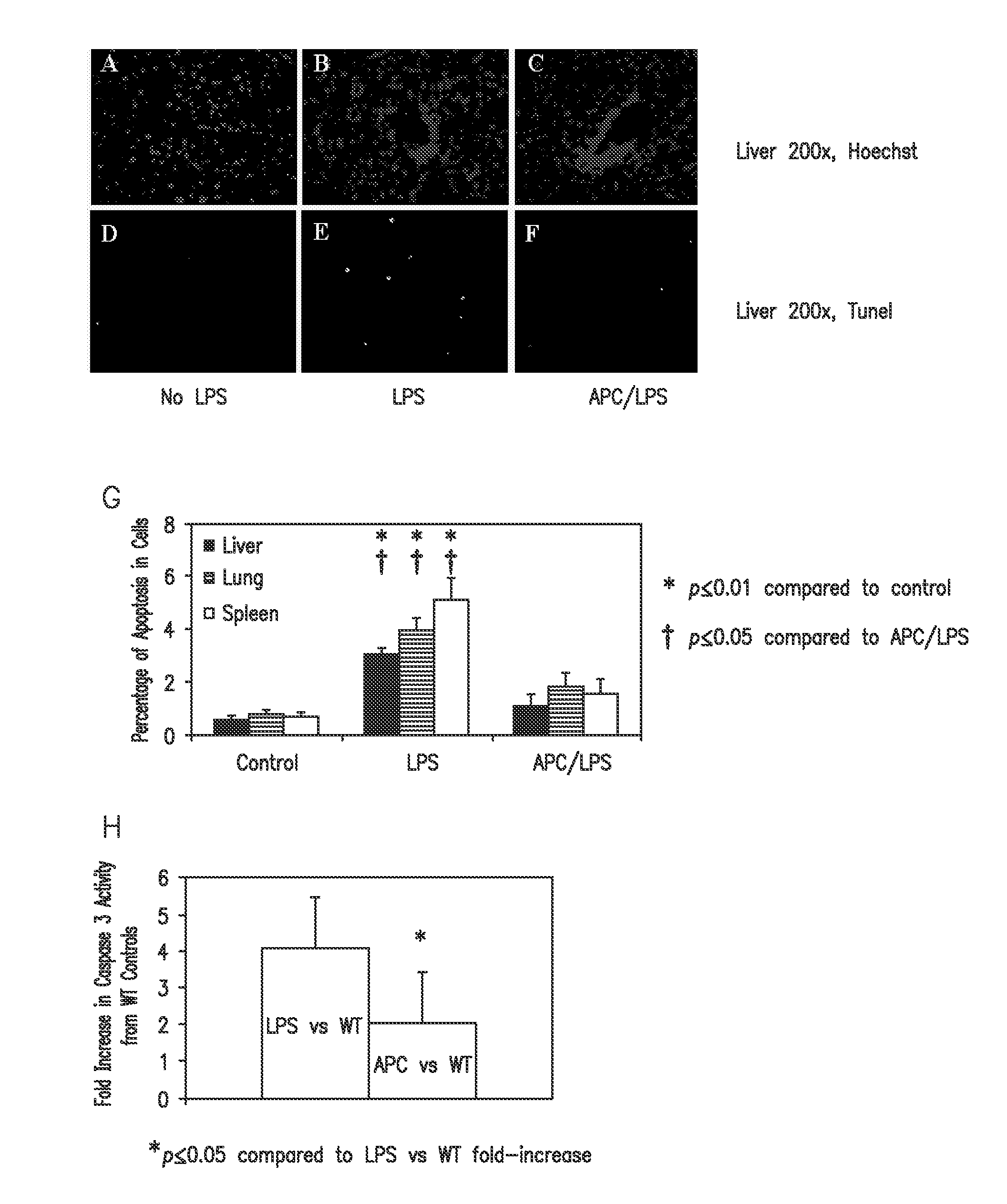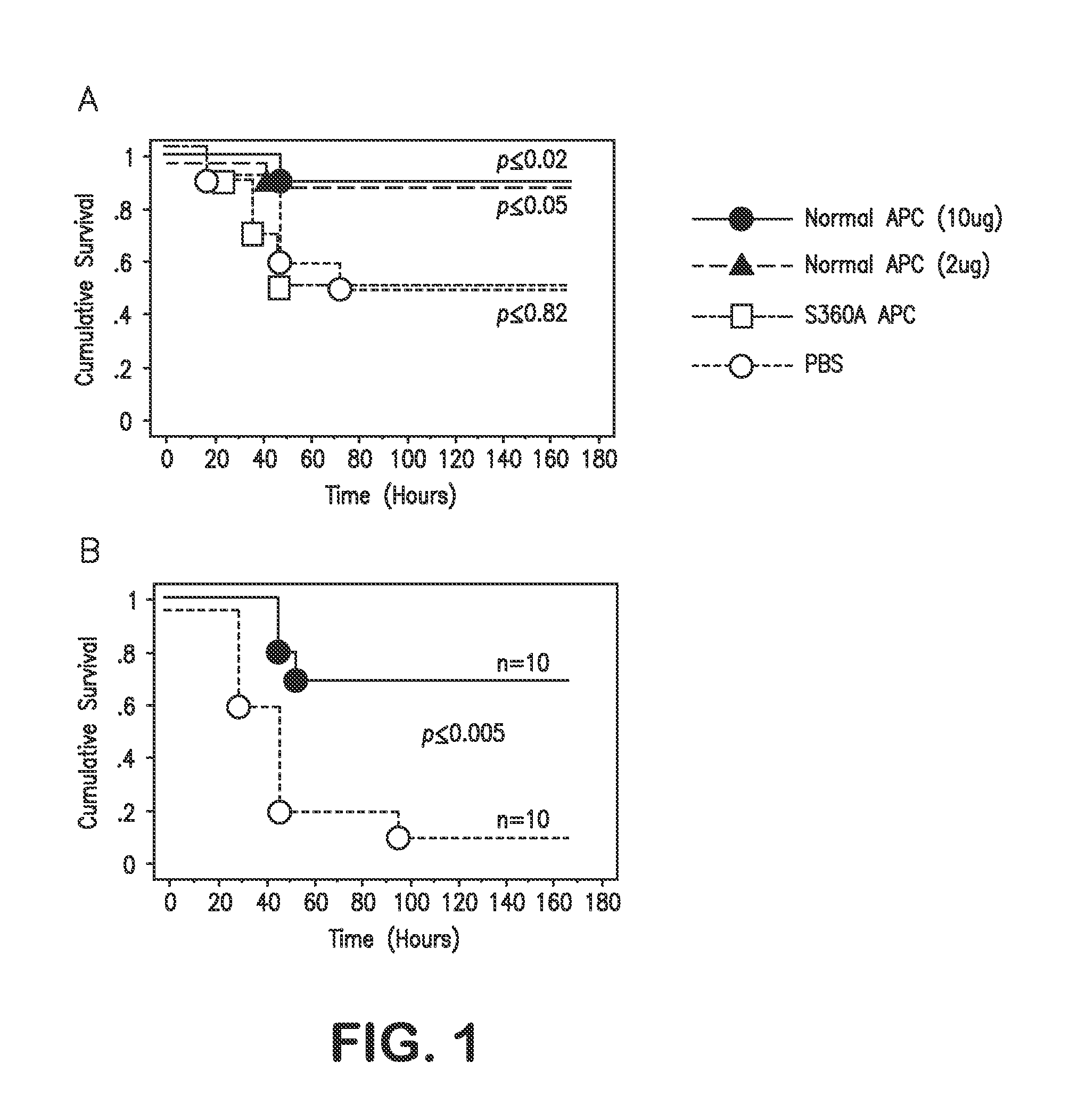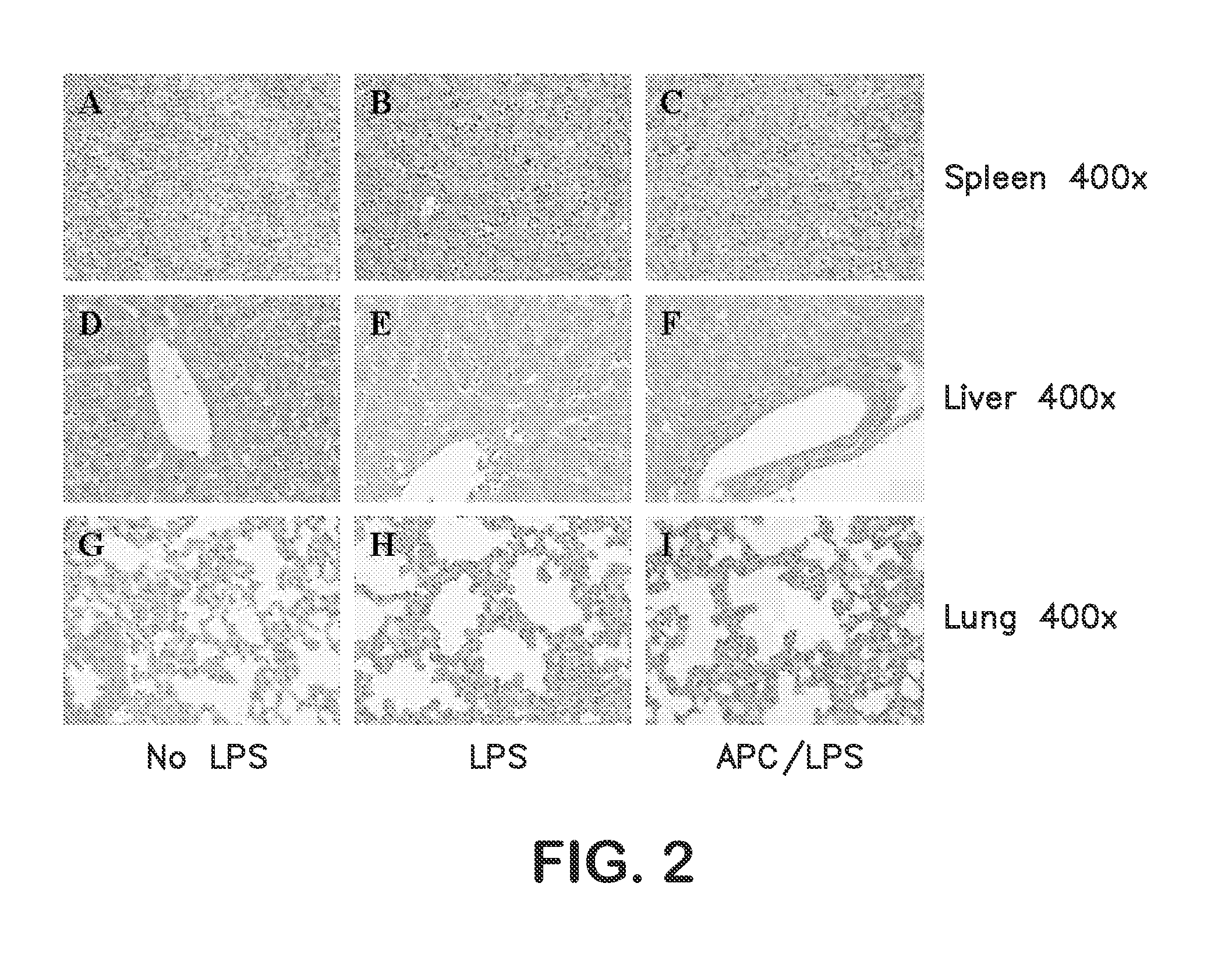Dosing regimen of activated protein c and variants having reduced anticoagulant activity
a technology of activated protein and anticoagulant activity, which is applied in the direction of antibacterial agents, peptide/protein ingredients, extracellular fluid disorder, etc., can solve the problems of increasing the inability to establish the cause of infection, and the apc treatment to be associated with increased risk of serious bleeding, so as to reduce the risk of bleeding, reduce the risk of lps-induced mortality, and reduce the effect of anticoagulan
- Summary
- Abstract
- Description
- Claims
- Application Information
AI Technical Summary
Benefits of technology
Problems solved by technology
Method used
Image
Examples
examples
[0044]Examples of APC variants having reduced anticoagulant activity over endogenous APC or wild-type recombinant APC, while retaining beneficial anti-apoptotic activity are described in Griffin et al. U.S. patent application Ser. No. 10 / 886,766 (published as US 2005 / 0037964). Specific examples are variants of recombinant APC or protein C having at least one mutation at a residue in a protease domain of a surface loop selected from the group consisting of loop 37, the calcium loop, and the autolysis loop. One aspect of this embodiment comprises mutating the recombinant APC or protein C at any surface loop of the protease domain and determining the variant APC's anticoagulant and cytoprotective activities in assays as described.
[0045]To screen the candidate protein C variant for desirable properties in accordance with the invention, the protein C variant would be converted to the activated form (APC) prior to measuring activities. In another aspect of this embodiment, a library of ca...
PUM
| Property | Measurement | Unit |
|---|---|---|
| Time | aaaaa | aaaaa |
| Time | aaaaa | aaaaa |
| Mass | aaaaa | aaaaa |
Abstract
Description
Claims
Application Information
 Login to View More
Login to View More - R&D
- Intellectual Property
- Life Sciences
- Materials
- Tech Scout
- Unparalleled Data Quality
- Higher Quality Content
- 60% Fewer Hallucinations
Browse by: Latest US Patents, China's latest patents, Technical Efficacy Thesaurus, Application Domain, Technology Topic, Popular Technical Reports.
© 2025 PatSnap. All rights reserved.Legal|Privacy policy|Modern Slavery Act Transparency Statement|Sitemap|About US| Contact US: help@patsnap.com



